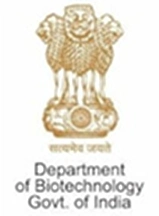Epigenetic regulation of nervous system development in health and disease
About This Lab
CHROMATIN REGULATION OF NERVOUS SYSTEM DEVELOPMENT IN HEALTH AND DISEASE
The cerebral cortex is the seat of higher order functions in the brain. Chromatin and epigenetic regulations play a central role in cortical development. Understanding how chromatin control of gene expression leads to building of the brain adds to our basic knowledge of this crucial developmental process. Further, mutations in chromatin regulatory networks lead to several neurodevelopmental disorders.
My lab’s broad research aim is to understand chromatin-level control of brain development in health and in disease.
Mouse model of cortical development
At the fundamental level, we would like to explore the crosstalk between different chromatin complexes and tease out the interactions at the molecular level to understand the fine-tuning of gene expression of downstream targets and ultimately bring in-depth molecular insight into the dynamicity of the developing brain. This depth and rigour of understanding is best achieved in a mouse model of cortical development. To address these questions we combine mouse genetics with functional genomics and protein biochemistry to identify downstream target genes and their interacting partners. For functional and cellular analysis of the identified target genes we perform, in utero electroporation, organotypic slice cultures, dissociated neuron/glia culture and retrograde and anterograde labelling of axon tracts to examine connectivity in mice brain.
Human derived neurons and cerebral organoids
We further extend our work from basic to translational in trying to understand the cellular and molecular mechanisms of neurodevelopmental disorders like schizophrenia (SZ) and bipolar disorder(BPD).
Mental illnesses have neurodevelopmental origins and are poorly understood due to lack of appropriate mouse models to adequately recapitulate the human disease at multiple levels. As part of the Accelerator program for Discovery in Brain disorders using Stem cells (ADBS)(link is external) we utilize the valuable iPSC lines generated from clinically dense families with SZ and BPD. We generate 2D and 3D cerebral organoid cultures and combine CRISPR-Cas gene editing to model neuropsychiatric disorders in a dish.
Dr. Muralidharan is a DBT/Wellcome Trust India Alliance, Intermediate Fellowship awardee.



 Share
Share
 bhavanam@instem.res.in
bhavanam@instem.res.in 91-80-61948001 EXT, 8231
91-80-61948001 EXT, 8231
